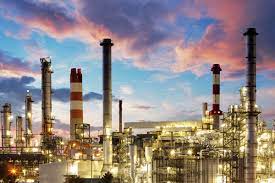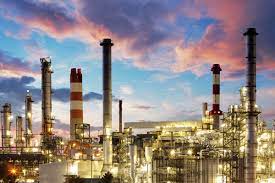
More than a fifth of global oil refining capacity is at risk of shutdown, according to an estimate published on Thursday by energy firm Wood Mackenzie, as petrol margins fall and demand to limit carbon emissions grows.
Of the 465 refining assets examined, the consultant identified around 21% of worldwide refining capacity under danger of shutdown in 2023.
Wood Mac discovered that Europe and China had the most high-risk locations, placing approximately 3.9 million barrels per day (bpd) of refining capacity at risk, based on its estimates of net cash margins, carbon emissions costs, ownership, environmental investment, and strategic value of refineries.
According to the analysis, 11 European sites represent 45% of all high-risk plants.
According to data from industry association Concawe, over 30 European refineries have closed since 2009, with nearly 90 remaining operational.
This wave of closures has been fueled by competition from newer and more complicated plants in the Middle East and Asia, as well as the COVID-19 epidemic.
Petrol margins are likely to fall by the end of this decade as demand falls and sanctions against Russia relax, while expected carbon levies should begin to pinch, according to the Wood Mac research.
According to Wood Mac senior oils and chemicals analyst Emma Fox, operating expenses could skyrocket to the point where "closure may be the only option".
Meanwhile, Nigeria's massive Dangote oil refinery might terminate a decades-long petrol trade from Europe to Africa worth $17 billion per year, putting additional pressure on European refineries that are already under threat of closure due to increased competition.
The Dangote refinery, with a capacity of up to 650,000 bpd, started operational in January but was not included in Wood Mac's research.
China's seven high-risk sites are small, independent refineries. These refineries, sometimes known as 'teapots', are subject to stricter government controls and compete with bigger integrated plants, which are typically state-owned and more sophisticated.
(Source:www.thefinancialexpress.com)
Of the 465 refining assets examined, the consultant identified around 21% of worldwide refining capacity under danger of shutdown in 2023.
Wood Mac discovered that Europe and China had the most high-risk locations, placing approximately 3.9 million barrels per day (bpd) of refining capacity at risk, based on its estimates of net cash margins, carbon emissions costs, ownership, environmental investment, and strategic value of refineries.
According to the analysis, 11 European sites represent 45% of all high-risk plants.
According to data from industry association Concawe, over 30 European refineries have closed since 2009, with nearly 90 remaining operational.
This wave of closures has been fueled by competition from newer and more complicated plants in the Middle East and Asia, as well as the COVID-19 epidemic.
Petrol margins are likely to fall by the end of this decade as demand falls and sanctions against Russia relax, while expected carbon levies should begin to pinch, according to the Wood Mac research.
According to Wood Mac senior oils and chemicals analyst Emma Fox, operating expenses could skyrocket to the point where "closure may be the only option".
Meanwhile, Nigeria's massive Dangote oil refinery might terminate a decades-long petrol trade from Europe to Africa worth $17 billion per year, putting additional pressure on European refineries that are already under threat of closure due to increased competition.
The Dangote refinery, with a capacity of up to 650,000 bpd, started operational in January but was not included in Wood Mac's research.
China's seven high-risk sites are small, independent refineries. These refineries, sometimes known as 'teapots', are subject to stricter government controls and compete with bigger integrated plants, which are typically state-owned and more sophisticated.
(Source:www.thefinancialexpress.com)














